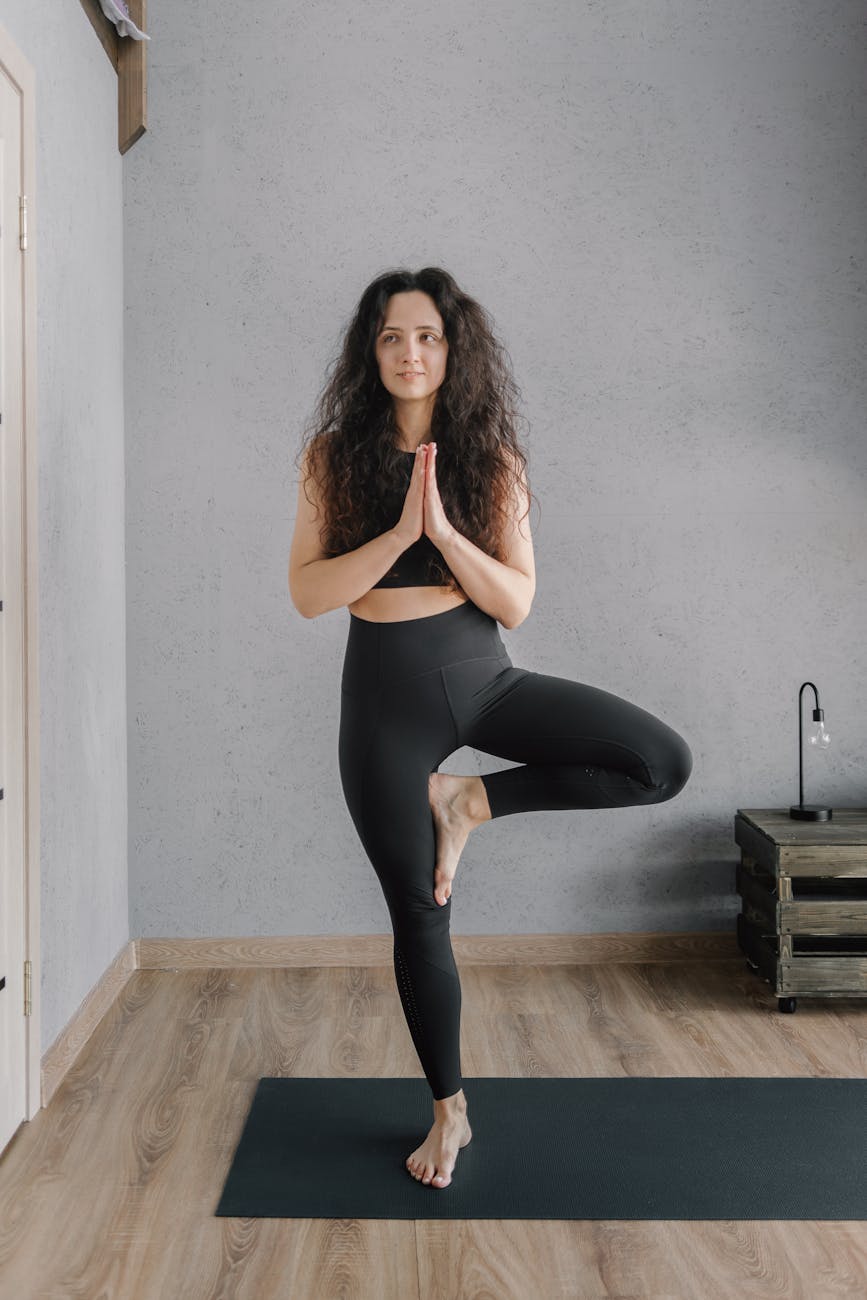Let's get started...
Exploring the Best Time to practise Yoga: A Guide for Teens
Yoga, an ancient practise rooted in Indian philosophy, has grown immensely popular worldwide, offering a blend of physical postures, breathing exercises, and meditation. It's particularly appealing as it doesn't require high-tech equipment and can be practiced almost anywhere. For teenagers navigating through the dynamic years of growth and change, yoga can be a supportive tool not just for physical health but also for mental clarity and emotional stability. Let's explore the optimal times to roll out the yoga mat and how these choices can impact your daily life as a teen.
Understanding the Different Times of Day to practise Yoga
Yoga can be practiced at any time of day, depending on your schedule, body's response, and what you hope to achieve through your practise. However, the morning and evening offer distinctive benefits that can be particularly appealing depending on your daily routine and physical and emotional needs.
Morning Yoga
Starting the day with yoga can be rejuvenating. The morning air is usually fresh and calm, setting a peaceful environment for practise. From a physiological perspective, morning yoga can help wake up your body, loosening stiff muscles and joints after a night's rest. Stretching and engaging in physical activity releases endorphins, often termed as 'feel-good' hormones, which boosts your mood and prepares you for the day ahead.

- Increased focus: Yoga in the morning enhances your concentration and mental clarity, helping you at school by making it easier to absorb and retain information.
- Better stress management: With yoga, you cultivate mindfulness and breathing techniques that allow you to start your day with a lower stress level, offering tools to handle school pressures more effectively.
- Healthy routines: Establishing a morning yoga practise can also encourage other healthy habits, such as having a wholesome breakfast and maintaining a regular sleep schedule.
Evening Yoga
Evening yoga, on the other hand, helps in unwinding and decompressing after a day full of activities. If your day involves a lot of physical activity or mental wear and tear, turning to yoga can provide both a physical and emotional release, helping in muscle relaxation and mental unwinding.
- Enhanced sleep quality: Engaging in gentle, restorative yoga poses in the evening can promote better sleep, crucial during teenage years when your mind and body are developing rapidly.
- Stress relief: Yoga sessions in the evening can serve as an effective stress management tool, helping in reducing anxiety that might have built up during the day.
- Reflect and rejuvenate: Evening is a good time to reflect on the day's activities and centre your thoughts through meditation and breathing exercises, fostering personal growth and emotional stability.
Which One Fits You Best?
The decision on when to practise yoga should be guided by your personal preference and daily schedule. Some teenagers find it easier to wake up early and start their day with yoga, while others might find it more convenient to unwind with yoga after finishing their day's responsibilities.
Listen to Your Body
It's crucial to listen to your body's signals. If you feel stiff and sluggish in the morning, gentle yoga might be perfect to kickstart your day. Conversely, if you're feeling restless or stressed at night, a calming yoga session might be just what you need to ensure a good night's sleep.
Account for Your Activities
Your daily activities can also dictate the best time for yoga. If your day involves intense physical activity, like sports, an evening yoga session might help in muscle recovery and relaxation. Meanwhile, if your day is more sedentary, a morning yoga session can activate your body and mind, getting them ready for the day ahead.
Practical Strategies for Integrating Yoga into Your Routine
Consistency is key in any practise, and yoga is no different. Here are some strategies to make yoga a regular part of your life:
- Set realistic goals: Begin with achievable goals, like a 10-minute session twice a week, and gradually increase the duration and frequency.
- Use resources: Utilise online classes or apps that offer guided sessions that you can do at home and fit into your schedule.
- Keep it interesting: Mix up your routines with different styles of yoga, like Hatha, Vinyasa, or Yin yoga, to keep the practise exciting and challenging.
- Create a dedicated space: Set up a particular area in your home for yoga, which can be as simple as a quiet corner with a yoga mat.
Conclusion
Ultimately, the best time to do yoga is when it feels right for you. It should fit seamlessly into your life and be something you look forward to. Whether you choose to do it in the morning or evening, yoga offers tremendous benefits that can enhance your well-being, manage stress, and contribute to your physical fitness.
How are you feeling?
It is really important that when we need help, we feel able to ask for it. This could be speaking to a parent, a close friend, a teacher or someone else you trust. Sometimes it can be really hard to share our feelings with other people but if we are feeling low or don't know where to turn, sharing with others is really important. Teachers will always take you seriously and listen to your problems in confidence if you approach them for help. Likewise, parents, siblings or friends will help you if you reach out to them.
If you feel like you can't speak to anyone you know, there are people and organisations that can help support you:
- Childline - Call them on 0800 1111 any time of the day or night, every day of the week
- NSPCC - Call them on 0808 800 5000 between 10am and 4pm Monday to Friday or email them on help@NSPCC.org.uk
- The Samaritans – Call them on 116 123 any time of the day or night, every day of the week
- SANE – Call 0300 304 7000 for support (4:30pm - 10:30pm every day)
- Mind – Call 0300 123 3393 (9:00am - 6:00pm Monday to Friday)
*Sometimes we will use real life examples in our articles to aid understanding. When we do, names and ages will be changed.













